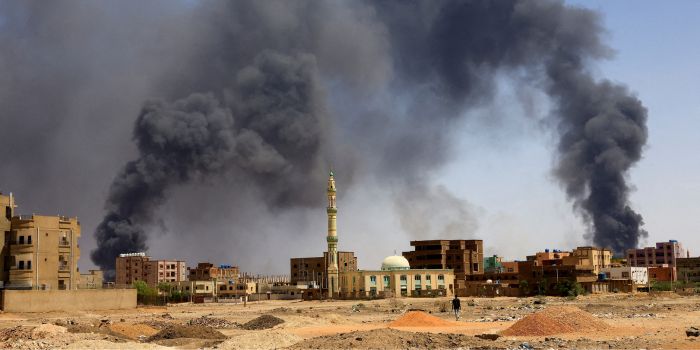WHO warns of Cholera risk amid Kenya's flood crisis

By Hanifa Adan |
As rains intensify, the risk of disease outbreaks looms large, calling the urgent need for coordinated efforts to provide relief and prevent further health crises in flood-affected regions.
The World Health Organisation (WHO) has issued a warning of a potential surge in food-borne diseases, with cholera outbreaks already reported in affected regions.
"There is a likelihood for increased illnesses associated with contaminated food diseases," cautioned WHO-Kenya in an alert issued from Nairobi in the wake of devastating floods.
Keep reading
The floods have wreaked havoc across the country, claiming over 260 lives and displacing more than 378,000 individuals, according to Kenyan authorities.
With 41 out of 47 counties impacted and displaced populations crowded into makeshift camps in schools and churches, the risk of disease transmission is heightened, particularly in light of damaged sanitation infrastructure.
Cholera, a waterborne disease, has already emerged as a significant concern, with 44 cases reported in Tana River County, one of the worst-hit areas along the coast. This outbreak highlights the urgent need for clean water sources and improved sanitation facilities in affected communities.
To mitigate the risk of food-borne illnesses, WHO-Kenya emphasises the importance of food safety practices, including thorough cooking, proper storage, and enhanced personal hygiene measures for flood-affected populations.
"We must be agile and ready to respond, led by the government and along with partners, to bring relief to hundreds and thousands of affected people," said Abdourahmane Diallo, WHO representative in Kenya.
The floods have wreaked havoc on Kenya's healthcare infrastructure, with at least 14 health facilities shuttered in various parts of the country and a major water treatment plant contaminated.
Moreover, the crisis extends beyond Kenya's borders, with approximately one million people displaced by floods in neighbouring Burundi, Rwanda, Somalia, Ethiopia, and Tanzania, according to the UN Office for the Coordination of Humanitarian Affairs.

















